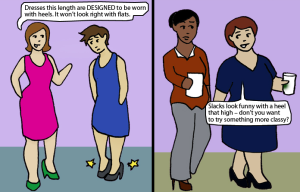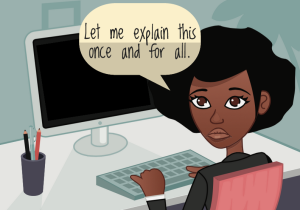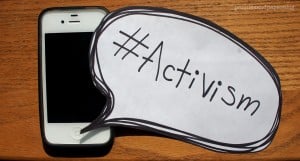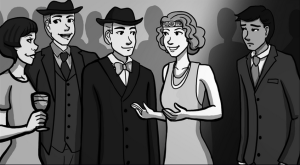
Doctor handing over a newborn baby to a new parent.
Childbirth is an everyday miracle that we take for granted. Our society doesn’t honor creating life as the sacred process that it is. We stigmatize parents who struggle due to lack of resources instead of supporting them.
My mom birthed and raised four kids by herself in a majority-Black Georgia town where 30% of children live in poverty. My wife and I, both Black and queer, may not be as brave as she was.
Anti-Blackness makes life especially hard for Black families. Black women die during childbirth at rates 4 times higher than white women, and Black women in the South are particularly at risk of dying while giving birth.
Will my partner and I accept the challenge of bringing children into a world where Black lives and LGBTQ+ lives are treated like they don’t matter?
Choosing to have kids when you’re queer and/or trans and a person of color isn’t an easy decision because of the many barriers standing in our way. Most queer and trans people of color (QTPOC) can’t afford the high costs of being inseminated, getting a surrogate, or adopting.
Despite facing obstacles, QTPOC parents still exist, as do QTPOC who hope to become parents in the future. Fortunately, there’s a growing movement of trans and queer birth workers of color catering to the reproductive health needs of families like ours.
Briana Wilborn is immersed in this movement in the Bay Area. A Black queer doula, student midwife, and reproductive health consultant who also encapsulates placenta, Wilborn calls herself a “birth keeper” to encompass all of her professional identities.
A doula is a birth worker who helps parents navigate labor, birth and the postpartum period by providing informational, emotional, and physical support.
Doulas like Wilborn keep it real with their queer, trans, gender non-binary, and POC clients regarding what to expect during childbirth from biased hospital staff. They help pregnant folks understand and navigate oppressive medical systems.
A midwife is a medically trained birth worker who provides reproductive health care to people with uteruses throughout their lifetimes. Some midwives deliver babies for clients in their homes or at a birth center instead of a hospital.
Midwifery is an ancient practice that’s been largely erased because of the myth that white male doctors know best when it comes to childbirth. By reclaiming midwifery, QTPOC are recovering the traditions of our ancestors and rejecting racist and patriarchal institutions.
QTPOC doulas and midwives benefit all parents, especially those who are queer, trans, gender non-conforming and/or people of color.
Here are 3 ways trans and queer birth workers of color make life better for parents:
1. They advocate for parents and hold medical providers accountable.
Doulas help their clients make informed decisions and ensure that parents know what’s going on every step of the way. They work with parents to create a birth plan, which states how they prefer to be cared for while giving birth.
Doulas hold medical providers accountable to their client’s birth plan. Queer doulas of color such as Jordan Alam view advocating for clients as an integral part of their work.
For Alam, a Muslim Bengali queer femme who resides in Seattle, advocating for clients means educating them on medical interventions during prenatal visits and letting them know they can ask for more time to make decisions and clarifying questions in the delivery room.
In their role, Alam is removed from the emotional and physical sensations of childbirth and able to speak up when things aren’t happening according to the birth plan. Not only does Alam provide comfort in the delivery room, they also represent their client’s wants and needs.
Trans and queer birth workers of color know how to show up for their clients because of the individual and systemic oppression they experience in their everyday lives. This is something privileged white birth workers will never be able to understand.
“A lot of doulas, especially white doulas, aren’t actually doing advocacy work. They don’t see childbirth as a moment of giving power back to clients,” Alam says.
2. They know how to serve LGBTQ+, POC, and other families on the margins.
How doulas are portrayed in the media makes it seem as if they’re only for wealthy white folks. Trans and queer doulas of color make space for LGBTQ+, POC, immigrant and low-income parents to feel okay about accessing their services.
“I’m constantly thinking about, ‘What are the words that I’m saying?’ and how are they going to impact someone who’s trans, how are they going to impact someone who’s fat, how are they going to impact someone who’s Brown,” Wilborn says.
Trans and queer birth workers of color are there for parents from historically oppressed backgrounds who experience multiple challenges during their childbirth process.
Michelle Zenarosa, an LA-based queer Filipinx mother of 7-month-old Aki and the Managing Editor of this publication, is “eternally grateful to the universe” for bringing a queer Filipinx doula into her life who supported her through tough times before, during, and after pregnancy.
When trying to get pregnant, a white male medical provider discouraged Zenarosa and her partner from using a queer friend’s sperm, arguing that queer men were more likely to have sexually transmitted infections and other diseases.
Bracing herself for future discrimination from doctors, Zenarosa got in touch with Jhoanna Galvez, a doula recommended by friends. Galvez supported her through almost giving birth at 19 weeks; five months of bed rest; an emergency C-section; and Aki getting sick as a newborn.
Zenarosa’s doula connected her to online forums where folks were having similar experiences, as well as to a friend who also experienced being on bed rest. Hearing positive stories from this community made her difficult pregnancy more bearable.
Furthermore, Zenarosa’s doula was able to put her family at ease at the hospital because she shared their language and culture. This is why having a birth worker that reflects you is such a powerful thing.
3. Birth work isn’t just a job for them. Their work is grounded in the birth justice and reproductive justice movements.
While QTPOC birth workers are few in number, their movement is strong. Both Alam and Wilborn see their work as political because of the historical ways bodies of color have been violated in the U.S., including forced sterilizations and medical experimentation.
The work of trans and queer midwives and doulas of color is their way of ending the systemic mistreatment of POC, queer and trans bodies by offering culturally-competent birth care.
Their services aren’t transactional; they don’t do this work just for the money. They build authentic, transformative relationships with clients because their work is rooted in their liberation.
QTPOC birth workers are fighting for birth justice and reproductive justice within women of color and QTPOC-led organizations across the country, such as Ancient Song Doula Services in Brooklyn, Roots of Labor Birth Collective in the Bay Area, and Q/tpoc Birthwerq Project in Seattle.
Birth justice and reproductive justice makes birth work both personal and political for QTPOC. Their jobs allow them to build movements, reclaim ancestral practices and serve their clients from a place of love and justice.
***
Becoming a birth worker can be difficult for a lot of QTPOC. Training and setting up your own business is expensive, which is why Alam is fundraising to support the costs of continuing education.
Also, trans and queer birth workers of color often experience microaggressions from peers who don’t acknowledge things like racism and gender pronouns and from hospital staff who question whether they belong in the delivery room.
Despite these challenges, both Alam and Wilborn highly encourage fellow QTPOC to enter into the birth work field. I encourage it, too, because I believe the world needs more trans and queer birth workers of color to make childbirth more accessible and equitable for all.
[do_widget id=’text-101′]
Neesha Powell-Twagirumukiza (she & they pronouns) is an Everyday Feminism Reporting Fellow. Neesha identifies as an intersectional feminist, womanist, writer, community organizer, facilitator, dancer, freedom fighter, wife, and cat mama. She’s constantly conspiring in the name of liberated Black futures, queer and trans people of color power, solidarity economics, and transformative justice/community accountability. Neesha’s based in a suburb south of Seattle, where she lives, loves, and creates with chosen family.
Search our 3000+ articles!
Read our articles about:
Our online racial justice training
Used by hundreds of universities, non-profits, and businesses.
Click to learn more




















